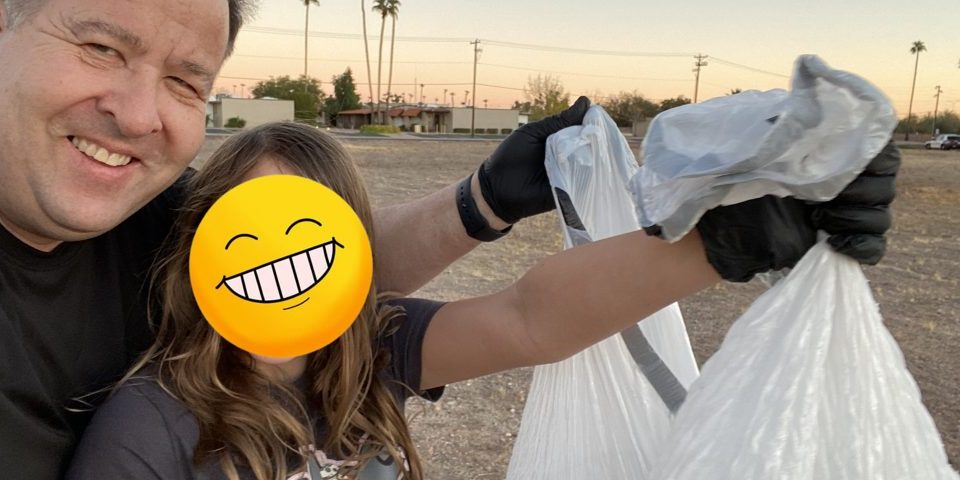Censorship at schools

ChatGPT for fun and profit
February 4, 2023Choose Charity
June 15, 2023As I strode through my high school corridor carrying a flasher barricade, I focused on not seeing the eyes I knew were following me. The blinking yellow light seemed brighter in the fluorescent hallway than it had been in my early morning car. Regardless, I kept putting each civil disobedience tagged sneaker in front of the other. The Principal had his back turned to me as I strode past. Then I heard the words I knew were coming, “What are you doing?!” I did not stop but turned my eyes toward him, Thoreau’s words echoing in my mind to steel my resolve, “I’m the majority. A majority of one!” (Lawrence, 1971). It was the reading of The Night Thoreau Spent in Jail in Honors English that gave me the resolve to stand up to my perceived injustices and today, a flasher barricade was my opening foray. As our principal liked to immobilize students’ cars with a yellow boot, I thought he would appreciate a flashing traffic barricade.
Prior to high school, most of my worries were centered around sports, girls, scouting, and school. I had never heard of Henry David Thoreau and did not know what a Transcendentalist was. When I walked into Mrs. Bestor’s 3rd period Honors English class, I quickly made my way to the back of the room. The room was somehow always stuffy and reminded me of dusty old books. I was engrossed in a fantasy series by Piers Anthony and wanted to fade into the background so I could read. It was not to be. Instead, when Mrs. Bestor walked in, she announced, “Move your desks into a circle. We are going to read a play and you are going to be the actors!” A collective groan made its way around the room. A play was sure to be both embarrassing and boring.
When the books were passed around the room, I was happy to see it wasn’t Shakespeare yet again. I meant no offense to old Wil, but I had already enjoyed an embarrassing turn reading the part of Romeo and didn’t relish the idea of parroting another of his characters. Instead, it was, The Night Thoreau Spent in Jail. With but three major and eight minor parts in the play, we took turns reading out loud instead of playing an individual part. I looked longingly at my fantasy novel before setting it aside. At first, I felt like I was going to go to sleep, but that soon changed. The fourth time it was my turn to read, my throat tightened, and my eyes blurred as a jailed Thoreau exclaimed to his mentor Emerson, “Waldo! What are you doing out of jail?” (Lawrence, 1971). I felt stunned. I understood how it felt to find your hero to be human and fallible.
For the rest of the week, the words of the play echoed in my mind. My teacher was pleasantly surprised when I asked to borrow the book; I never returned it. After reading the play several more times, I continued my exploration of Thoreau. I read Walden and On the Duty of Civil Disobedience next, trying to marry the concept of the naturalist and rebel existing in one person. I read every one of Thoreau’s published works that were in our school library. Then one day when I went to turn in my unfinished Piers Anthony book at the library, I discovered Thoreau’s journals – all 14 volumes of them. They were in the reference section of the downtown Mesa Public Library. Since I couldn’t check them out, I instead spent hours reading them cross-legged in the little-used reference aisle. I have since purchased my own copies of Thoreau’s journals.
Thoreau helped awaken my sense of self and the concept that rebellion was sometimes a duty. As I turned to the Principal, I smiled with a calm I didn’t feel and said, “I am carrying a flasher barricade”. Not waiting for a reply, I turned and continued to my first class of the day. It was important to me at the time to be able to do something, even something absurd. Earlier that day, I had stepped into the principal’s office to retrieve the key to the boot he had placed on my friend’s car. My friend had parked illegally to sign out of school when he received a text that his Mother was in the hospital. With the principal MIA, no one would retrieve the key, so Thoreau helped me do it. Perhaps affixing the boot to the principal’s desk and hiding the key was taking things too far; perhaps not. While time and understanding has softened the edge I felt in high school, I will never be afraid to stand on the side of what I believe is right. I owe that to a thin and simple play that started a journey of reading and discovery; a play called The Night Thoreau Spent in Jail.
It is concerning to read about the efforts in Florida to censor that which may make this or that group feel uncomfortable. Books provide a medium for us to discover who we are. It is foolish to think censorship will tame an individual’s ultimate discovery. Censorship is a line which, once crossed, plays no favorites in the end.
References
Lawrence, J., & Lee, R. E. (1971). The night Thoreau spent in jail: A play. New York: Hill & Wang.


